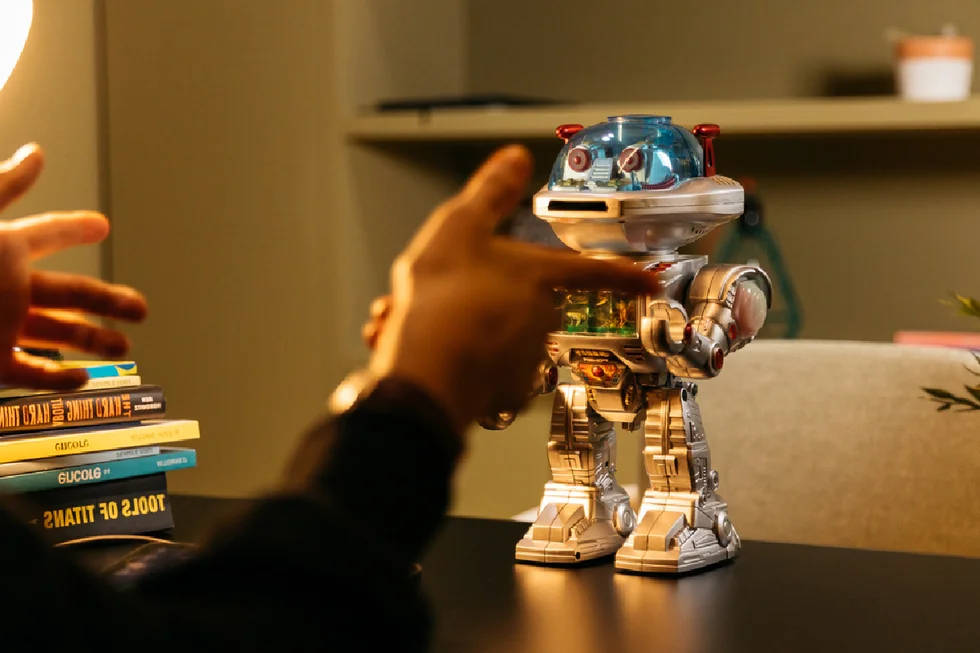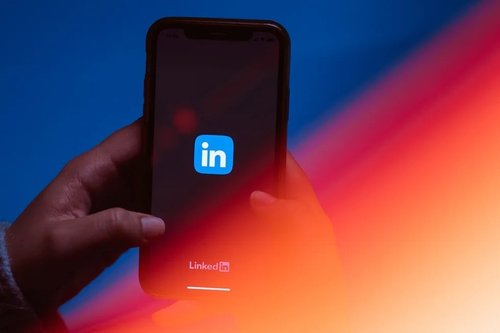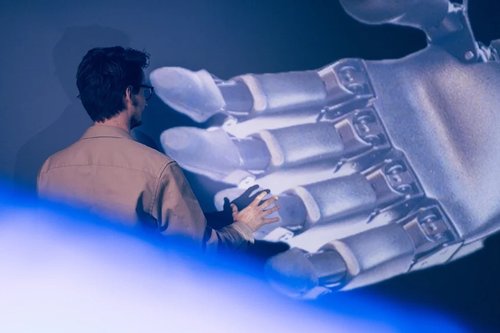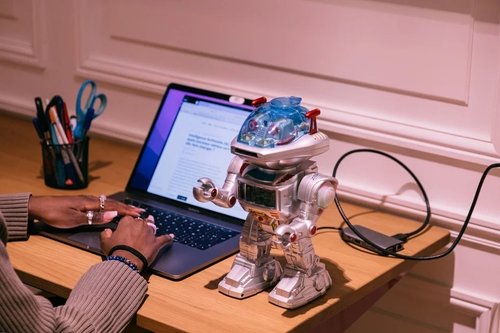Recruiter vs. computer: is AI really determining if you get hired?
Sep 05, 2022 - updated Sep 23, 2024
4 mins


Freelance writer, reporter
The job search has changed drastically over the past few decades thanks to the advancement of technology, especially the creation of the internet. Online job boards and networking services provide job hunters with tools that didn’t exist before. Traditionally, Human Resources representatives would get in touch with potential candidates to schedule an interview for an open position. But today, hiring decisions aren’t only made by trained professionals—they’re also made by artificial intelligence (AI) and computer algorithms.
A study conducted by Aptitude Research in 2020 found that 55 percent of companies are investing more in “recruitment automation,” hoping that it will improve efficiency and enable data-driven decisions. So what does this mean for applicants? Who—or what—is behind the hiring process in 2022?
Charming the automated recruiter
Utilizing artificial intelligence to pinpoint solid job candidates helps when it comes to time management and efficiency. Using tools like auto-filling and résumé data-populating, recruiters do not have to always undergo the time-consuming work of reviewing each candidate’s application manually. AI can check to see if candidates meet basic requirements, such as the number of years of experience and the level of education required for the role. This way, algorithms weed out those who don’t meet the minimum requirements.
Erika Colón, longtime recruiter and founder of Up Talent LLC, details the use of AI within the modern hiring process. “It helps with populating pages with information, but also with pulling keywords] to highlight certain applications,” she explains. When refining one’s résumé, matching vocabulary to that used in job descriptions can help an application stand out in the initial screening process; certain buzz words will raise green flags for both machines and recruiters.
Recruiting teams also turn to AI specifically for chatbot use; a recent study found that chatbots and “conversational AI” have become necessary for companies looking to drive talent engagement. The top three reasons companies have turned to chatbot technology in recruiting, according to Sense, a market leader in AI-driven recruiting solutions, are: (1) to improve the responsiveness of potential candidates, (2) to free up hiring managers’ schedules, and (3) to enhance the overall quality of the candidate’s experience.
Still, the human touch remains a vital element of the hiring process. “During my 11 years in recruiting, the process has been different for every company,” Colón says. While the buzz around automated processes is stronger than ever, candidates should still keep in mind that their application will reach human eyes at some point and they should be prepared to sell their profile to a real person.
AI and DEI: is there a compromise?
The desire to work for a company that advocates for Diversity, Equity, and Inclusion (DEI) can be hindered by a biased automated application screening, like that of the Amazon scandal in 2018, in which the company was found to be secretly using an automated talent search program that showed huge bias against female applicants. However, today, companies can use AI to review candidates in an unbiased manner, using tools to hide data like names, genders, or ethnicities from scanned applications so that people are chosen based on their skills and experience rather than their identifying factors.
New tools also exist to alert recruiters when the language in their job posts seems biased or holds unfair judgment, which could cause candidates from underrepresented backgrounds to lose interest in the position. “We see organizations using AI to review some of the job sites to ensure the language they’re using when they post [open jobs] is accurate or in line with the skills [needed for the job] versus anything that might [indicate bias],” Emily Strother, senior principal for research at Gartner, recently told ComputerWorld. This kind of initiative will hopefully make job posts more approachable and welcoming for qualified candidates from a diverse range of backgrounds.
The ethical concerns
With any automated system comes fair warning: your data will be shared with the company you’re applying to. However, it is possible that the systems being used to collect data go beyond résumés—often without consent. In recent years, companies have certainly made strides in eliminating biases from their hiring processes, avoiding asking candidates about factors like their political leanings, religious beliefs, sexual orientation, or disabilities and health conditions. But do their algorithms apply the same filters?
There is frightening ease of opportunity for AI tools to collect copious amounts of private information about a candidate. This poses a moral question, knowing that there is probably a difference between how a candidate presents themselves in a job application versus how they do so on their social media profiles other personal outlets. This makes a solid argument for limited AI use; for instance, not fully delegating recruiting responsibilities to AI, but simply enhancing the hiring process with AI where deemed necessary.
Balance is key
Today, technology can give recruiters a comprehensive inside look into job applicants’ professional histories, and computer algorithms are indeed used to select the best candidates for an open position. But as Colón explains, while AI has certainly infiltrated the job hunt to a notable degree in recent years, the hiring process nevertheless remains very much human. “It’s still a very personal process, depending on what you recruit for,” Colón says. “But for me, it has always been more about word of mouth and networking than anything else.”*
There are two key points to remember:
- Use keywords when writing your résumé: complement the use of AI by including optimal keywords in your résumé and making sure your listed skills and qualifications match those in the job description.
- Make a human connection: after applying for a role, reach out to the job poster on LinkedIn or send an email out to the hiring manager.
Hiring someone for a job relies partially on experience and skillset—aspects AI can helpfully scan for early in the process. But beyond that, getting to know the applicant on a more personal level is key to determining whether they are a good fit for the role. Artificial intelligence is far from reaching these human levels of connection and emotion. It can complete mundane tasks like scanning for credentials, as well as pull applications that utilize certain buzz words. Still, it can’t recognize talented individuals who might not have the best résumés or most optimized applications. So while a machine won’t determine whether or not you pass the interview stage, it may help recruiters scan your application at the very beginning of the hiring process.
Photo: Welcome to the Jungle
Follow Welcome to the Jungle on Facebook, LinkedIn, and Instagram and subscribe to our newsletter to get our latest articles every week!

More inspiration: Job hunting in the digital age
Navigate the digital job search landscape with these tips on online job search, social media job search, and using job search apps and tools.

LinkedIn etiquette: the thin line between authenticity and TMI
Ever cringed at a LinkedIn post that went too far? Discover the secret to striking the perfect balance.
Jun 19, 2023

The rise of AI-assisted resume building
AI is reshaping the job hunt. Learn how to harness its power for crafting irresistible resumes, and stand out in the job market!
May 17, 2023

AI for (not so) good: are recruitment algorithms a threat to atypical profiles?
AI may not be able to detect the unique qualities of atypical candidates who don't meet the specified criteria.
Mar 22, 2023

ChatGPT: are AI-generated cover letters the way forward?
Thinking of using AI to speed up your job search? Think again.
Jan 26, 2023

Virtual job fairs: how to maximize your experience
Whether you're an introvert, have a jam-packed calendar, or want to try a new way to meet prospective employers, virtual job fairs could be for you.
Dec 27, 2022
The newsletter that does the job
Want to keep up with the latest articles? Twice a week you can receive stories, jobs, and tips in your inbox.

Looking for your next job?
Over 200,000 people have found a job with Welcome to the Jungle.
Explore jobs